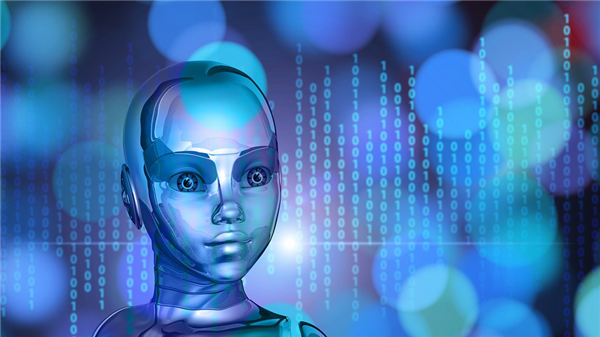
(Source: Pixabay)
Artificial intelligence has never been far from the center of public opinion. As early as 1953, Marvin Minsky, the founder of artificial intelligence, declared: "We want to make machines smart. We want them to be conscious," and Douglas Engelbart, who was with him at the same time, replied: "Do you want to help machines achieve such functions?" So what are you going to do for humans?"
For sixty years, Engelbart's problems have plagued the pioneers of educational technology. Artificial intelligence offers an unprecedented opportunity to tailor learning plans to the individual needs of learners. However, these opportunities also bring unprecedented risks. Although the "end of the world" related to AI may be beyond the scope of education, if we blindly follow these techniques, it will stagnate its own flawed teaching methods. The impact of artificial intelligence on education will also depend on how we understand the relationship between students and teachers and machines.
Personalized learning is generally considered to be the best solution to free education from the traditional teaching model. Today, traditional teaching models are unable to meet the changing needs of students and teachers. The spread of knowledge and skills among learners, the ever-increasing class size and workload, makes it almost impossible for teachers to ensure that they pay enough attention to each student.
Virtual tutor is a powerful pusher for personalized learning. For the first time in history, we were able to use tools to give one-on-one tutoring to all learners. The Virtual Tutor is a fully automated teacher who uses AI technology to simulate the behavior of human tutors: it first diagnoses each learner's knowledge gaps in different curriculum areas, and based on this, pushes personalized learning plans and can be based on learning. Feedback, constantly adjusting the difficulty and form of the content.
The application of virtual tutors brought significant learning results. Take the virtual tutor Maths-Whiz developed by Whizz Education as an example. In the first year of enrollment, students use one hour a week, and their mathematics knowledge progresses 18 times. month.
If you are a teacher, this may make you worry, but rest assured that the role of human educators is more important than ever. Because virtual tutors have their limitations at two key points. First, virtual teachers are controlled by data-driven measurement standards, and the data collected is only a small part of the student's thinking. Virtual instructors may have amazing accuracy in imparting core knowledge, but do not involve deeper cognitive issues, such as problem-solving thinking or logical reasoning; and as AI technology replaces some blue-collar jobs, these capabilities are now More popular. More importantly, virtual teachers cannot provide learners with a richer learning experience, such as social or emotional connections. No machine learning algorithm can completely replicate the characteristics of people in teaching, and this is a key element of "personalization" in personalized learning.
Blind compliance with technology will produce a cramped, inhuman learning experience, just like the problems that have arisen in the previous teachings. So the key question is, how can we make teachers better use virtual tutors to deepen their interaction with students?
Artificial intelligence is a given term (loaded term refers to the use of words with emotional and evaluation meaning to describe objective facts), which means it can replace human labor. Engelbart himself prefers the definition of "augmented intelligence": the use of technology to dramatically enhance human capabilities. In education, the point of enhancing intelligence is that while technology can help us accelerate the acquisition of better learning outcomes, quality teaching methods are always the core driver.
At school, monotonous and repetitive daily tasks occupy most of the teacher's time, making it impossible for them to devote more energy to face-to-face communication with students. The virtual teacher and the real-time learning analysis function provided by it can help the teacher to collect the student data, objectively provide the teacher with the appropriate difficulty of the professor's content, and organize the structured course tasks, in this way instead of occupying the teacher. A lot of time and effort for the tedious task. Therefore, under the state of data analysis, teachers focus on designing a richer classroom form for students and providing students with a better learning experience. The real function of virtual tutoring is to enrich the role of teachers, so that they have more energy to invest more in-depth communication time for each learner, in order to enhance the learner's personalized learning experience.
The amount of data we can collect is limited. At present, high-risk evaluation standards have been formed in the field of education. The evaluation methods of students, teachers and the entire education system are more and more single, relying only on simple academic achievements. Artificial intelligence has the potential to disrupt existing assessment methods: educators no longer rely on an exam, but track student progress as a positive feedback tool rather than an accountability mechanism, reducing the risk of using assessment data. But these tools may also be used to develop high-risk exam plans. Big data also means huge business opportunities for those who benefit from the commercialization of teaching and learning. What needs to be guarded is that the data can only measure part of the student's learning outcomes, and AI cannot replace the evaluation of human teachers.
The cost of virtual instructor virtual tutors and the ability to scale means that it can not be ignored in the future education field. However, the design and application of technology requires educators to choose carefully. Artificial intelligence is clearly able to break the traditional education model, but also accelerate the realization of the lofty educational goals of personalized learning. But we need to avoid excessive fanaticism about artificial intelligence technology and critically think about what these technologies can bring to students and teachers.
Luxury Dining Set,Luxury Dining Room Sets,Luxury Dining Table Set,High End Dining Tables
Foshan Haoyu Furniture Factory , https://www.hyluxuryfurniture.com